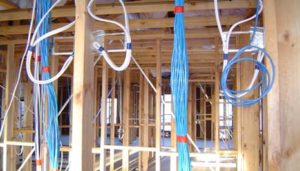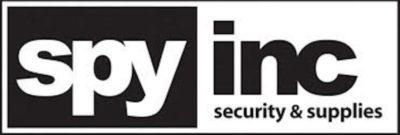
CCTV Wiring Options
Choosing the right CCTV wiring is important. Make sure you choose video wiring wisely as there are many options. Not all CCTV wiring will work with every type of cameras. You may also want to consider your future needs. Here are a few things you should consider when choosing the CCTV cabling:
What type of security cameras are you planning to use (IP, HD-TVI, HD-SDI,HD-CVI or analog)?
When planning to install IP cameras one should use cat5e or cat6 cables. Either type will work equally well and will allow for camera cable runs of up to 300 ft without need for extenders. Although IP cameras are a little more expensive, the technology will allow for the highest resolution cameras and full networking abilities. These small cables require only a simple ethernet connection and will allow POE (power over ethernet) and video signals to operate over a single cable run. Another advantage of the ethernet video cables (cat5e or cat6) is that it is forward thinking. If you decide to upgrade your cameras anytime in the future you can bet that this cable will support future technology.
If you are installing older cameras or if you are on a tight budget and want cost effective HD analog cameras (TVi is best) then you can run either cat5e or low voltage and RG59/RG60 cables. Then you simply need to connect power and video balons to complete the cables.
CCTV Cabling Environment
Will the cables be sitting in standing water or will they be buried underground?
If you know your video cables will be sitting in a puddle of water or run underground then you should consider outdoor cables. These cables are a little more expensive and a little thicker but are advised when significant exposure to water for extended periods of time is expected.
Do the CCTV wires need to be shielded from power sources?
When running CCTV video cables near high voltage wires or appliances you will need to use well shielded cables. Ethernet cables have some shielding but can be further protected from power with conduit. This will ensure no power interruption of the video signal. Alternatively you can stick with HD analog (ie. TVI) and use RG59. This coaxial cable is well shielded and will protect video signals from power interruption.
Will the cables need to be protected from vandals?
Are cables to be run in areas that will allow criminals to access them? If so then you should consider either hiding the cables or using metal conduit. Protecting video cables from vandals is critical in certain high traffic, high crime and easily accessible areas. A combination of hiding cameras and utilizing conduit is often the best approach to protect your CCTV wiring.
